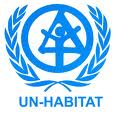Sanitation and Hygiene
Financing onsite sanitation for the poor : A six country comparative review and analysis A report by WSP World Bank
Posted on 22 Nov, 2014 10:30 AMThis report by the Water and Sanitation Programme (WSP) draws attention to the fact that a very high percentage (40%) of the population in the world does not have access to basic level of sanitation, which has serious health consequences and puts a considerable economic burden on the poor. The report explores the issue of what can be the most appropriate financing mechanisms to meet the sanitation needs of the poor.
Rejuvenation of community toilets A policy paper by UNHABITAT and Government of Madhya Pradesh
Posted on 22 Nov, 2014 10:30 AM The policy paper examines the condition of community toilet in terms of its infrastructure, operation & maintenance, uses and payment of user charges. The paper is a result of a joint collaboration between Water for Asian Cities (WAC) Programme of UN-HABITAT and the Directorate of Urban Administration & Development, Government of Madhya Pradesh.
The policy paper examines the condition of community toilet in terms of its infrastructure, operation & maintenance, uses and payment of user charges. The paper is a result of a joint collaboration between Water for Asian Cities (WAC) Programme of UN-HABITAT and the Directorate of Urban Administration & Development, Government of Madhya Pradesh.
In Madhya Pradesh, WAC is supporting Asian Development Bank-financed project in cities of Bhopal, Gwalior, Indore and Jabalpur to improve and expand urban water and sanitation services. This study has been taken up to monitor implementation of the water and sanitation related targets.
Water credit and microfinance: Improving access to clean water and sanitation in the developing worldWaterorg
Posted on 22 Nov, 2014 10:30 AMKansas City makes it easy to lose faith in people. Elected officials often act like schoolchildren. In the local corporate world, job-shredding incompetents outnumber innovators. A list of the metro's 200 most repulsive inhabitants would include a fair number of clergy.
{C}
Waterless urinals technology : An innovative solution to save potable water
Posted on 22 Nov, 2014 10:30 AM
Potable water has been a scarce resource and environmentalists are working day and night to save as much water they can. Many organizations are regularly putting their efforts to make products to save potable water.
Understanding gender water and sanitation through my internship with Arghyam
Posted on 22 Nov, 2014 10:30 AMFrom September until December 2009, I completed an internship with Arghyam through my master's studies at Oregon State University to better understand gender, water, and sanitation in rural locations in South India.
Empowerment through action: The story of Anna Lakshmi
Posted on 22 Nov, 2014 10:30 AMThis article shows how women are catalysts for advocating widespread improved sanitation and – at the same time – reap substantial benefits in a program promoted by an NGO called Gandhigram Trust. The empowerment of women and marginalized populations is a vital step in realizing gender equality – equal access, planning, and management – for water and sanitation.
Village of tomorrow village of today Sanitation justice in Tamil NaduA photo essay
Posted on 22 Nov, 2014 10:30 AMA village in Tamil Nadu realises the necessity of hygiene and sanitation for health and dignity of women
Posted on 22 Nov, 2014 10:30 AMThrough a maze of winding, curving roads off a main highway in Tamil Nadu, one must travel to reach the small, agrarian village of Muthampatti.
A woman who brought toilets education and compassion to her village The story of Anna Lakshmi of Tamil Nadu
Posted on 22 Nov, 2014 10:30 AMPriyadarshini, or Priya to friends, wanders inquisitively around a large cement pad where a group of about thirty women and men are gathering to create a map of their village using a colored chalk powder called Rangoli.
Right to Water and Sanitation Visioning and strategy planning meeting India WASH Forum FANSA FORUM WaterAid 2009
Posted on 22 Nov, 2014 10:30 AMThis report describes the proceedings of a workshop organised on the 5th of August 2009 at New Delhi, by the Freshwater Action Network South Asia (FANSA), the Forum for Policy Dialogue and Water Conflicts in India (FORUM), India WASH Forum and WaterAid.
The crisis of providing safe and affordable drinking water, as well as meeting the water requirements for livelihoods and infrastructure for rural and urban sanitation in India, is becoming acute by the day. In this context, ensuring the right of citizens to drinking water and sanitation, can be an important policy initiative to help improve the overall situation.





